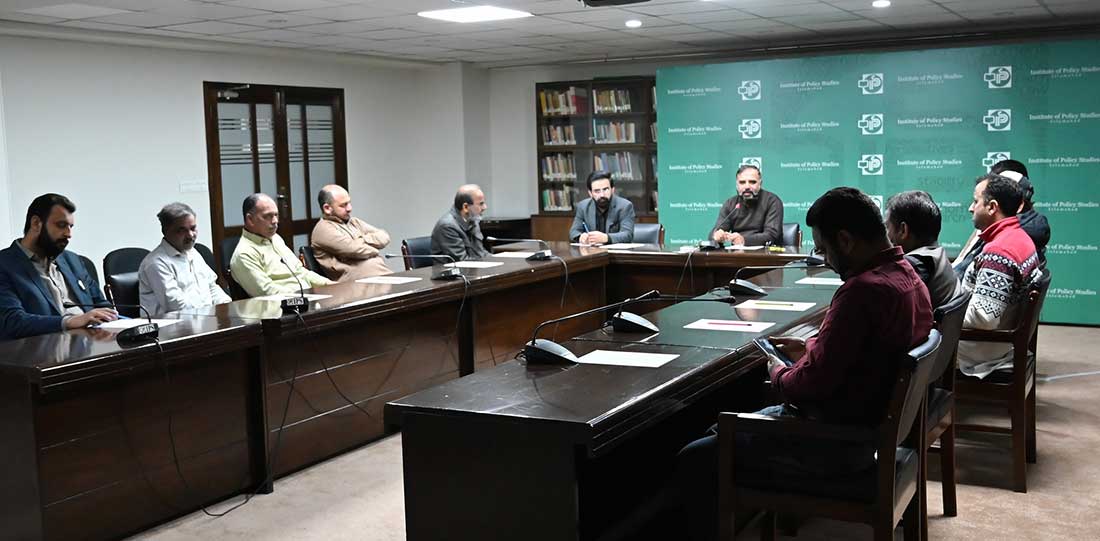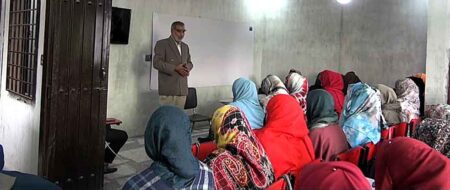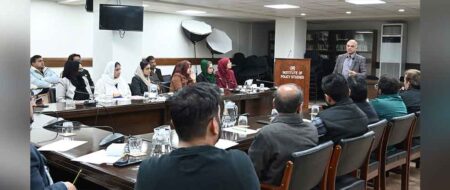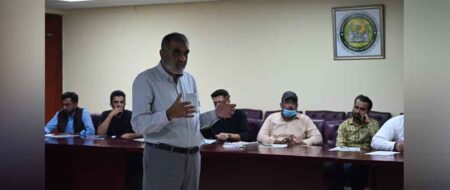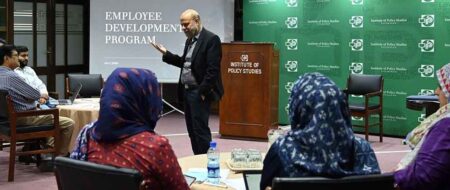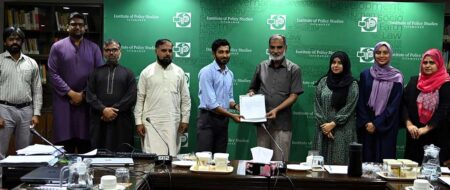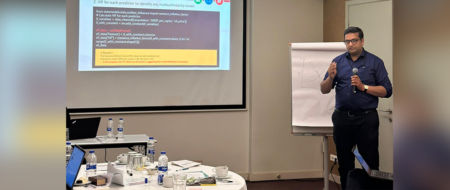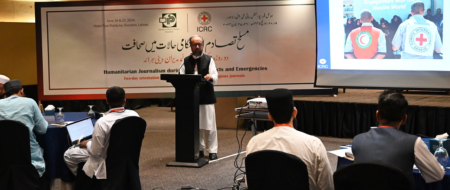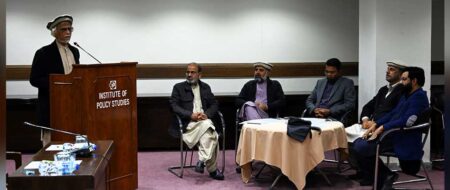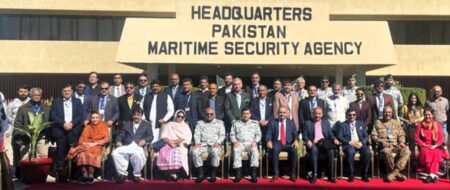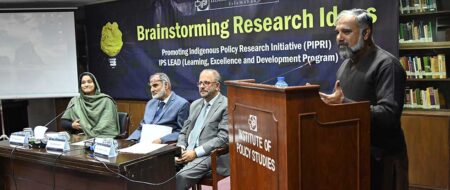IPS team capacity-building session on professional ethics, purpose and challenges at workplace
Aimed at facilitating a deeper connection with our inherent values, strengthening the sense of purpose, and navigating workplace challenges with faith-based clarity, IPS LEAD – the Learning, Excellence and Development program of IPS, conducted a series of four capacity-building sessions for IPS team in the holy month of Ramadan.
The first session, titled ‘Navigating Workplace Challenges with Faith: The Power of Al-Mu‘izz & Al-Muzil’, held on March 07, 2025, was led by Syed Nadeem Farhat Gilani, senior research fellow at IPS. The session delved into the significance of faith in addressing workplace challenges, emphasizing the divine attributes of Al-Mu‘izz (The Bestower of Honor) and Al-Muzil (The Dishonorer). Al-Mu‘izz signifies that true honor and respect come not from career achievements but from aligning one’s actions with divine guidance. In contrast, Al-Muzil serves as a reminder that this misalignment of actions, such as arrogance, dishonesty, and unethical behavior, can lead to a loss of credibility and setbacks, no matter how successful one may seem in the short term.
The second session, titled ‘Ethics at Workplace: An Islamic Perspective’, held on March 14, 2025, was led by Tayyeb Siddiqui, deputy director, Jamia Tafheem ul Quran, and secretary general, Al Khidmat Foundation Islamabad. The session underscored that Islamic ethical principles provide a strong foundation for professional excellence and organizational integrity. The speaker also discussed common ethical challenges in the workplace, encouraging team participants to reflect on real-world scenarios and the importance of upholding fairness, honesty, and accountability in their professional interactions.
The third session, titled ‘Navigating Workplace Challenges with Faith: The Power of Al-Razzaq and Al-Hadi’, held on March 21, 2025, was led by Dr Naveed Butt, neonatologist and associate physician, Federal Government Services Hospital, Islamabad. The session offered a reflective and inspiring perspective on the importance of trusting in divine wisdom and sustenance, drawing on the attributes of Al-Razzaq (The Provider) and Al-Hadi (The Guide). Through prophetic examples, participants explored how they can find, understand, and apply Allah’s guidance in personal and professional conduct, decision-making, and emotional well-being.
The fourth session, ‘Where do you want to go?’ was led by Tayyeb Siddiqui, deputy director, Jamia Tafheem ul Quran, and secretary general, Al Khidmat Foundation Islamabad, on March 28, 2025. In this session, the speaker focused on facilitating participants to reflect on their personal and professional goals through the lens of purpose-driven vision. The speaker conducted engaging and thought-provoking interactive exercises to guide the team in identifying their aspirations and aligning them with the vision of Islam and the Prophet Muhammad (PBUH). He emphasized the significance of developing a clear vision that is rooted in the service of humanity, integrity, and long-term impact. The session also encouraged participants to think beyond short-term achievements and consider how their goals contribute to a larger, value-based mission.
